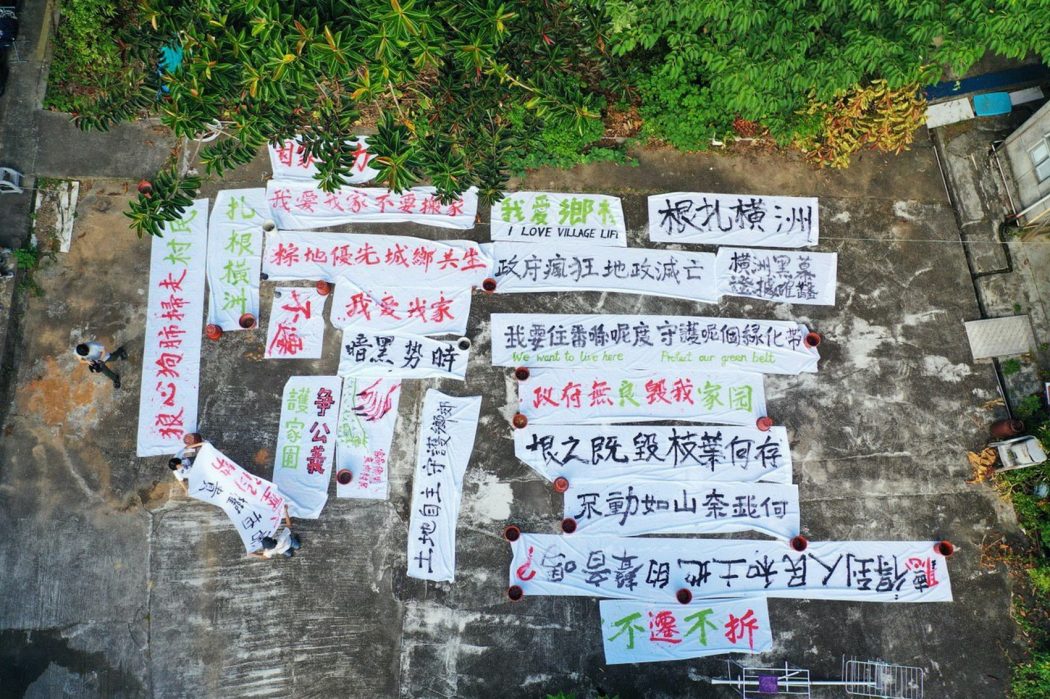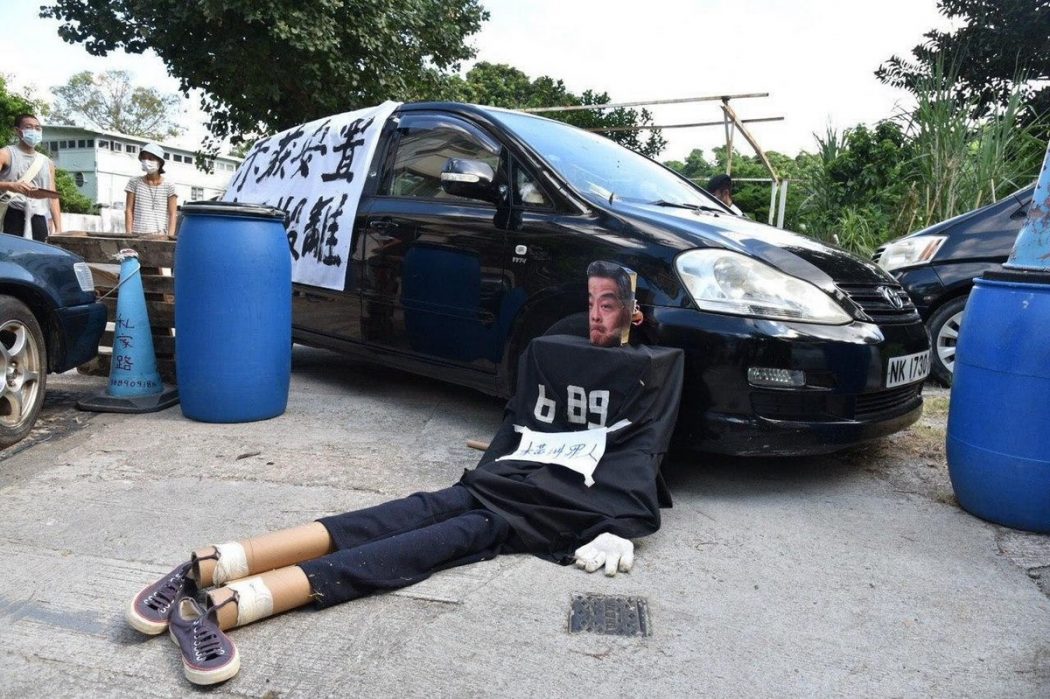Wang Chau villagers drove out government workers on Wednesday, after around 50 representatives from the Lands Department entered the Yuen Long villages in a bid to evict residents to make way for a planned public housing estate.
Following a final eviction notice issued on July 16, government staff, subcontracted security guards and workers brought tools to clear emptied homes in the three rural villages located in northwest of the New Territories. Police were also on the scene.
In response, residents of Wing Ning Tsuen, Fung Chi Tsuen and Yeung Uk San Tsuen blocked roads and put up banners that read “haven’t received compensation, definitely won’t move out.”
According to local media, some workers smashed the glass windows of houses, while others tried to place a rock at a village entrance, only to be stopped by villagers and volunteers. The Lands Department staff left the area after three hours.

Pro-democracy lawmaker Eddie Chu, who has followed land issues in Hong Kong closely, liaised with government representatives and urged them to resolve resettlement issues before carrying out clearance work.
Chu wrote on Facebook that the government compensation of HK$600 per square foot was significantly lower than the market price of HK$1,000. He said such compensation would not be enough for residents to purchase homes in urban ares. The legislator also criticised the government, saying they had ignored alternative solutions suggested by villagers, including exchanging unused government land underneath the nearby railway station.
“Today, a large group of Lands Department staff and police thrust into the village, but power and violence cannot change the fact [they are] seizing land forcibly,” Chu wrote.

Wang Chau residents have fought against the authorities since 2015, over what they see as a “black-box” operation in the Wang Chau development project.
The government planned to turn the 5.6-hectare greenbelt into a public housing estate with 4,000 units. But the plan was embroiled in scandal in 2016, after it was revealed that the government scaled down the project and excluded a nearby brownfield site following off-the-record meetings with rural leaders.

The 34-hectare area – mainly controlled by rural strongmen and designated for open storage and car parks – could yield at least 13,000 public housing flats.
‘I love my home’
At a press conference held at the village, residents chanted slogans including “Protect this green belt” and “I love my home, don’t want to move.” Activist Ng Cheuk-hang of the Land Justice League said the government had not addressed the controversies surrounding the development project.

Ng also slammed Lands Department workers for “disturbing” the remaining residents, despite promising they would only tackle residences that were emptied already.
A resident surnamed Chan told reporters that he thought the eviction dates listed by the government were “meaningless.” He said the government offered little assistance to villagers in terms of resettlement, and did not provide acceptable compensation.

“The government wasted five years on catering to the interests of developers or large subcontractors. They completely disregarded the living standards and condition of the villagers,” Chan said.
In March, the finance committee of the Legislative Council approved the budget for advance works related to the first phase of the Wang Chau public housing project. According to local media citing information from the Lands Department, around 258 households were affected by the project as of last month, while 52 households have yet to be relocated or receive new placements.

